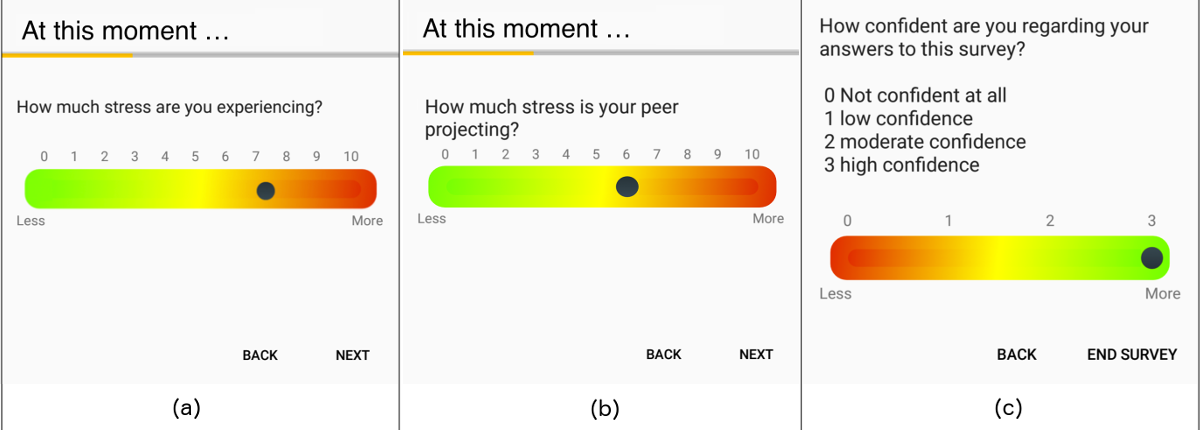Aug 2020: Allan Berrocal PhD Defence

28 August 2020, 9-11h, Battelle A, PhD Defence of Allan Berrocal titled: “Peer-ceived Momentary Assessment: Empirical Examination Of A Peer Supported Sensing Method To Augment Personal Sensing In Human Computer Interaction”.
PhD Candidate Allan Berrocal
Thesis Title “Peer-ceived Momentary Assessment: Empirical Examination Of A Peer Supported Sensing Method To Augment Personal Sensing In Human Computer Interaction”
Abstract
The Ecological Momentary Assessment (denoted EMA) method is used to repeatedly collect an individual’s momentary self-assessments of states (e.g., stress, pain, depression), combined with other digital data streams, predominantly obtained from smartphone sensors and wearable devices. The EMA method has proven to be effective in multiple domains including psychology, psychiatry, clinical care, organizational research, and human computer interaction, among others. Nevertheless, individuals are oftentimes unable to provide reliable self-assessments about their states. For instance, if they have difficulties to identify their internal states (via introspection), if they have cognitive impediments such as mental disorders, or if they purposely have a motivation to misrepresent their true state (i.e., social desirability). In those cases, we argue that close friends, work colleagues, or family members may be able to fill in the gap, and provide their own assessments indicating how they perceive the internal state, or external observable behaviors from the target individual.
In this thesis, we propose and examine the feasibility of a method called Peer-ceived Momentary Assessment (denoted PeerMA) that collects those peer-based assessments (issued by peers of an individual), in addition to the self-assessments traditionally issued directly by the individual (via EMA).
We conduct an exploratory research using a hypothetico-deductive, mixed methods approach, that combines qualitative and quantitative methods, in an iterative way to gather extensive data about the advantages and disadvantages implied by the PeerMA method.
Along the thesis, we implemented the PeerMA method using smartphone applications. We conducted three field studies, and found evidence about the feasibility of using PeerMA to study real life phenomena. As a contribution, we derived and discuss human factors that influence the acceptance of the PeerMA method, as well as methodological aspects that affect the applicability of the method in broader contexts. Moreover, we also show that, in the context of computational modeling of human states, peer-based assessments (gathered via PeerMA), can enhance the classification accuracy of algorithms that are trained to predict the individual’s self-assessment of the state (gathered via EMA).
Thesis document DOI
The Thesis Jury
Prof. Jean-Henry MORIN, president of the jury, Université de Genève
Prof. Giovanna DI MARZO SERUGENDO, thesis co-director, Université de Genève
Prof. Katarzyna WAC, thesis co-director, Université de Genève
Dr. Marcello MORTILLARO, thesis co-director, Université de Genève
Dr. Guillaume CHANEL, MER, Université de Genève (internal examiner)
Prof. Oscar MAYORA, FBK CREATE-NET, Italy (external examiner)
Prof. Niels VAN BERKEL, Aalborg University, Denmark (external examiner)
Thesis Defense Location/Time University of Geneva, Battelle A, 9-11h
